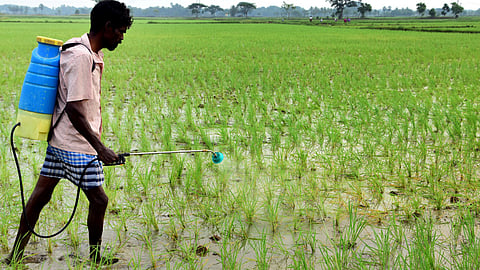

NAGAPATTINAM: Farmers in the district have raised concerns over the adverse effects OF irregular water supply on samba paddy cultivation. With many relying on herbicides to control weed growth, the lack of continuous irrigation is proving problematic.
They demand steady water flow from the Grand Anicut (Kallanai) into River Vennar to save standing crops. Currently, samba and thaladi cultivation is under way on 38,000 hectares in the district as against the target of 65,000 hectares set by the agriculture department.
Many farmers have adopted the direct sowing method, which is particularly vulnerable to infestation. About 90% of the crops in the district are grown using the direct sowing method, while the remaining are cultivated through methods such as manual transplantation, machine transplantation, and System of Rice Intensification, said S Eswar, joint director of agriculture department.
Herbicides are often used to combat weeds, but this method requires timely irrigation to avoid damage to the crops. “Farmers need to irrigate their fields within days of applying herbicides. For this, a continuous water supply is crucial. We cannot rely on the turn system at Grand Anicut,” said P Kamal Ram, district secretary of Tamizhaga Kaviri Vivasaayigal Sangam.
At present, water is being released from Grand Anicut at a rate of 910 cusecs into the Cauvery, 7,507 cusecs into Vennar, 1,901 cusecs into the Grand Anicut Canal, and 1,149 cusecs into the Kollidam from Lower Anaicut. When contacted, an official from WRD (Vennar division) said,
“We are taking steps to ensure discharge to all areas.” Dr V Kannan, an agronomist at Krishi Vigyan Kendra, stated, “Weeds tend to grow more during the vegetative stage. Given the uncertainty over irrigation, it is better to control weeds using manual labour or a cono weeder instead of herbicides.”